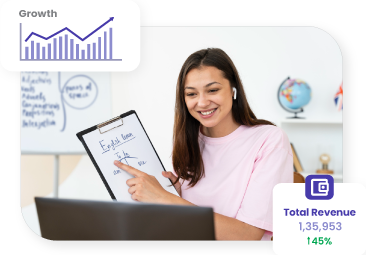In late July, suddenly there was no Facebook Analytics. Subsequently, the creators using Facebook business tools for growing their business online were in for a toss. One could guess why. It was a free service and did not require a Facebook handle to work. For many, Facebook Analytics was giving insight into how users were interacting with apps, websites, and others. With Facebook Analytics gone, what do social media professionals have to look forward to?
Busting myth number one: Facebook didn’t entirely shut down its marketing platform. Marketers can still monitor their ads and make the best use of Facebook as a social media marketing platform. All Facebook is trying to do is what marketers do best: consolidate their tools.
That brings us to a question: just how useful can Facebook turn out to be for a creator’s business? Have a look at what tools you can use to boost your business!
Facebook Business Suite
Launched in late 2020, Facebook realized how important a holistic marketing platform could be for a professional. Facebook Business Suite is a monitoring platform that basically functions on four levels:
- Gives you an overview: A single-page summary of all Facebook marketing activities
- Showcases trends: Gives you insight into your page’s reach
- Analyses content performance: Self-explanatory in showing you content performance
- Categorize your audience: know the basic demographics of your audience

You can monitor your growth and performance with the above details on a single dashboard. Such insights can help you see how your ads and content have interacted with a set audience.
Facebook Pixels
If we had to simplify, then the Facebook pixel is a code that you connect with your website and collects data. This data is sourced to track conversions from Facebook ads, which can be optimized to build a target audience and even remarket to people who have visited your website or taken some CTA.
For example, if a potential client clicks on CTA and leaves a hanger-on, Facebook Pixel will laser target that leads for greater marketing. It is super simple to integrate Facebook Pixel with your website, click here to check how.
How can you make use of Facebook Pixel to your benefit?
- Increases your ROI: Facebook Pixels ensures that you target the very audience that is likely to buy your product or service. Greater conversion, more ROI!
- Track Conversions: Get firsthand data on how, where, and why your leads convert. Understand user behavior on website and Facebook ads.
- Remarket Audience: Get granular with a potential buyer who abandoned a product or service. Make more sales!
If you’re using iOS 14.5 and experiencing data loss, it’s time to switch to Conversions API.

Facebook Conversions API
Unlike Facebook Pixels which trigger cookies on your website to collect data indirectly, Conversions API collects information directly from the users. Simply combine Conversions API with Facebook Pixels and gather data that is more reliable, exact, and has laser precision.
Conversions API can go a long way for your marketing plan. Know how?

- You can share user scores or lead scores and use them for optimization in other Facebook business tools for understanding customer journeys better!
- Improve information accuracy for targeting, measurement, and optimization when integrated with Facebook Pixel.
- When used separately from the pixel, Conversions API allows more control over what data you share and when you share it!
How You Can Use Facebook For Marketing Your Business
So far, we have discussed how Facebook helps your business through its tools. Now, let us dive further into the aspect of how you can use the platform Facebook for your business.
1. Optimize Your Facebook Business Page
Facebook has evolved itself to be a great free marketing tool for businesses. The platform allows businesses to identify themselves by not limiting linkings, images, and posts on a customizable page, apart from listing product offerings and services. This gives a better opportunity to the creators to showcase their business personality and character.
- Facebook business page shop now button
Your Facebook business page is a great spot to develop your brand identity. Share social media images, videos, links, or anything, as long as it is relevant to your business and seems like something your target audience would enjoy. It is always a good idea to use Facebook Insights to see what resonates most with your audience.
Keep in mind the fact that you are using a social media platform, whatsoever. It might be undesirable for viewers to get bombarded with sell posts while they are scrolling through their phones. Hence, go for a nice mix of humor, educational resources, and your services in your content.
2. The Classic of Facebook Advertising
Referred to as Marketplace Ads, this form of Facebook’s very own advertisement is a popular favorite strategy for generating leads. These classic ads include the following:
- headline with copy,
- an image,
- and a click-through link to either a Facebook page or an outside website.
Implementing a marketing strategy into your Facebook marketing is one possible technique for increasing likes or views on-page or driving website clicks.
Features of Marketplace Advertisement:
- Demographic Targeting- Facebook uses user data on age, location, education, and interests and streamlines your audience
- The ability to set ad budgets
- Ad testing- Marketplace allows you to run multiple ad versions simultaneously in order to compare ad designs and setup
- Built-in tools for analyzing ad performance
- Allows local businesses to advertise for a particular area
Facebook advertising also offers users the ability to increase “Likes” on their page as once an individual likes a page, they essentially become a follower of the concerned page and are delivered all the posts and updates of the same. These all lead to our greater goal of more users interacting with us and our brand, forming possibilities for a sales lead.
3. Hosting Contests on Facebook
Running Facebook contests, giveaways, or promotions is another Facebook marketing tactic that can increase followers and brand awareness.
Make sure to use a third-party app in order to conduct contests as Facebook itself is not a good platform for the same. There are plenty of paid as well as some free tools that can serve as a platform to host such contests. Shortstack offers a number of free contest templates as long as your page has under 2,000 likes. There are other options as well, like Pagemodo that are free of charge but your options with them are limited.
Keep track of contests, results, and other analyses on Exly!
4. Facebook Promoted Posts
Facebook page owners can pay a flat rate in order to have their individual Facebook posts reach a certain number of users, increasing the specific post’s reach and impressions.
Now, the question arises, why should page owners be paying to ensure their posts are being seen by their own followers on their news feed. Normally, when a user has liked a page, they are likely to view the posts of that page on their feed. But again, this theory assumes that the concerned users spend every waking moment of their life on Facebook’s news feed.
If the page is posting something the moment their followers are scrolling through their news feed, they are likely to see it. But even then, there is no guarantee that their feed will not be swamped by other posts. To the owner’s rescue, Facebook promoted posts to make it possible for those posts to reach followers even if the posting time and user’s interaction time do not overlap. It ups your chances of being seen on a user’s news feed.
Apart from being shown to existing fans, Facebook promoted ads offer an added option to reach friends of fans.
Although the flat rate and easy-to-set up option simplify the process, Promoted Posts lack the targeting options offered by other Facebook ads.
5. Sponsored Stories
Sponsored Stories capitalizes on the “word of mouth” marketing concept. They are a type of Facebook ad that shows a user’s interactions. Such as a Facebook like, to the user’s friends. If a user sees that his friends like a certain page, he is more inclined to pay attention.
The goal of Sponsored Stories is to have a user take the same action as their friends. Advertisers can choose to show friends actions like “likes” if they want more page likes, show friends who have “claimed this offer” if a business wants more users to engage with offers, et cetera.
Furthermore, they don’t only limit to likes or offers but they can be used with any Facebook Open Graph app. If a friend has just installed an app and signed in with a Facebook account, with Friends on Facebook, Sponsored Stories can show users that their friend has just used the app, with an invite to “join them,” “challenge them,” or any similar variation.
Sponsored Stories have 46% higher CTRs and 20% lower Cost Per Click (CPC) than regular Facebook ads. This makes them a very serious strategy for marketing on Facebook. CTR refers to the ratio of users who click on a specific link to the number of total users who view a page or any other kind of content.
6. Facebook Open Graph
When Facebook launched “connect” in 2008, it was an instant hit among users. Connect allow users to comment or like a third-party website without having to sign in, and users could perform the activities through their Facebook account itself. Two years later, Facebook launched Open Graphs which was so much more than Connect.
Facebook’s Open Graph API allows for creative interactive options outside of the standard “like” and “comment.” Posts can suggest other activities like, users “listen,” “taste,” and “read,” – it’s up to businesses to get creative. Basically, Open Graphs label a user’s action with their app. Billions of interactions are posted with Open Graph every day.
When users sign in to a site or app through Facebook, the user is automatically connected to Open Graphs. These ads are unique enough to stand out from the cluttered craziness of a user’s news feed.
Facebook games are the most prevalent example of Open Graph operations. They post a notice when a user has completed a level or won an achievement, among other performances. This creates a “word of mouth” phenomenon on Facebook and users are more likely to engage with the ad as they are being generated by a familiar friend, not simply a brand.
7. Facebook Exchange (FBX)
Unlike promoted ads, Facebook Exchange offers the advantage of ad retargeting through real-time bidding. Facebook extracts users’ web history data – when they visit a product page on a retailer’s website but fails to make a purchase, and provides the retailer to display an ad for that same product on Facebook with FBX. This is how Facebook tries to convince users to purchase a product they have recently viewed, hence, have a higher possibility to purchase it.
Initially, such advertisements were only relegated to the side columns, but ever since they were allowed to be displayed in news feeds, response rates reported to be 10 to 50 times higher than that of ad placements in the right column.
The Clickthrough Rate (CTR) for Facebook Exchange ads is, however, 40% lower than for other web retargeting ads, like those offered by the Google Display Network.
Apart from lower CTR, the Cost Per Click (CPC) is also 80% higher for Facebook compared to other retargeting ads. Still, in terms of cost-per-impression and cost-per-click, Facebook Exchange ads are considerably cheaper, so the monetary benefits depend on your business’s needs. Moreover, these numbers are also expected to go in the favor of retailers as exchange ads begin to appear more often in the news feed.
In Conclusion
While Facebook Analytics may take away some of the stellar features it has previously offered its users. The move may help them consolidate their data and marketing strategy better. Perhaps, better features are around the block, and only the wait can tell us! Till then, marketers can make the best use of currently available services to boost their sales.
Exly empowers creators with a host of features and learnings from across the web. Check it out today to learn more.






Add comment